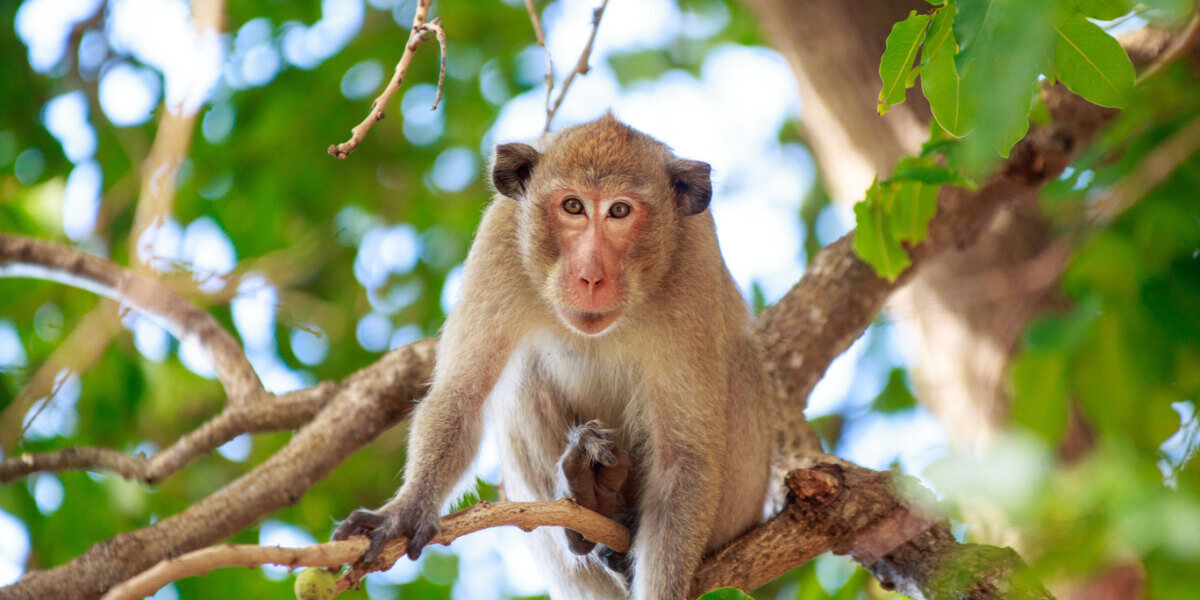1. Monkey Proof Your House: Fit A Minilatch / Monkeylatch:
One of the best ways to keep monkeys out of your house is to make sure your house is monkey proof. This involves finding the access points that monkeys will usually use to get in and out and blocking them. These are usually doors and windows around your home. But if you need to keep your doors and windows open for ventilation and fresh air the good solution is a MiniLatch – also known as Monkey Latch. MiniLatch has been designed specifically for this purpose. It’s an adjustable lockable latch that allows you to keep your windows and doors slightly open but locked. This means you can ventilate your home, but the gap is too small for a monkey or baboon to fit through (a MiniLatch allows an adjustable gap between 4,5cm and 8cm). MiniLatch is made from C304 stainless steel, comes with a lifetime guarantee and is quick, easy and hassle-free to install yourself and will fit any type of door or window, whichever way it opens and whatever it is made of.
2. Remove Food Sources:
The primary reason monkeys come to our properties is to look for food. By removing this source of temptation there is a chance that you will greatly reduce the chances that the monkeys will come looking for food. The vital thing to remember is to not feed the monkeys or leave fruit or other food sources out for them. This will only add to your problems as monkeys will remember your home as a place to get a snack.Also, ensure that your refuse is stored in a fully secured, monkey proof bin. There are a huge variety of devices to help you secure your bin. Rubbish is an easily accessible food source and unsecured bins or refuse left in the open wild will attract monkeys deeper into residential areas they would ordinarily avoid. Also, if you have your own veggie patch and live in an area with monkeys consider getting a greenhouse, or alternatively cover your vegetable patch with a wire mesh, there are strong meshes designed specifically for this purpose. Fruit trees are trickier, but the best thing you can do is to pick your fruit as it ripens, and get rid of old or rotting fruit.
3. Employ A Monkey Deterrent:
At times, even after removing all possible food sources, the monkeys just won’t stop. They want to harass you. Hence you have to shift to deterrents. Especially if are having problem in huge industrial estates and factories , you have to shift to modern alternatives. When it comes to deterrents there is a variety of options. These are largely useful for protecting your extended property. Electric fences are commonly used. While this might sound bad for monkeys, if the correct type of fencing is used it is unlikely to harm the monkeys. However, we strongly advise that you consult an expert in electric fencing solutions to make sure you get a fence that is both effective and humane. It depends on area to area.
Another deterrent that is growing in popularity is an electronic sound monkey repellent, these devices emit a harmless, high frequency sound when monkeys are detected. Plug-in repellents just require an outlet which creates a high frequency sound that is just as effective in deterring monkeys. Ultrasonic repellents and safe for the entire family, unless you own rabbits or pet rodents. These types of devices are perfect for publicly accessible spaces where it is hard to fence in and control access. While humans cannot hear the noise they emit, monkeys are perfectly equipped to hear the high frequency noise of these instruments. The noise is so strong and irritating to them that it is like a to the monkeys and absolutely nothing to us! Statistics have shown positive results in 70-80% cases. Each kind of repellent requires a different placement. Note, hard surfaces reflect ultrasound, and soft surfaces absorb it.
4. Scaring monkeys:
Employing toy snakes at the places where they lurk and/or creating huge sounds around them might scare them off and keep them at bay. These might cause disturbances to other residents though.

